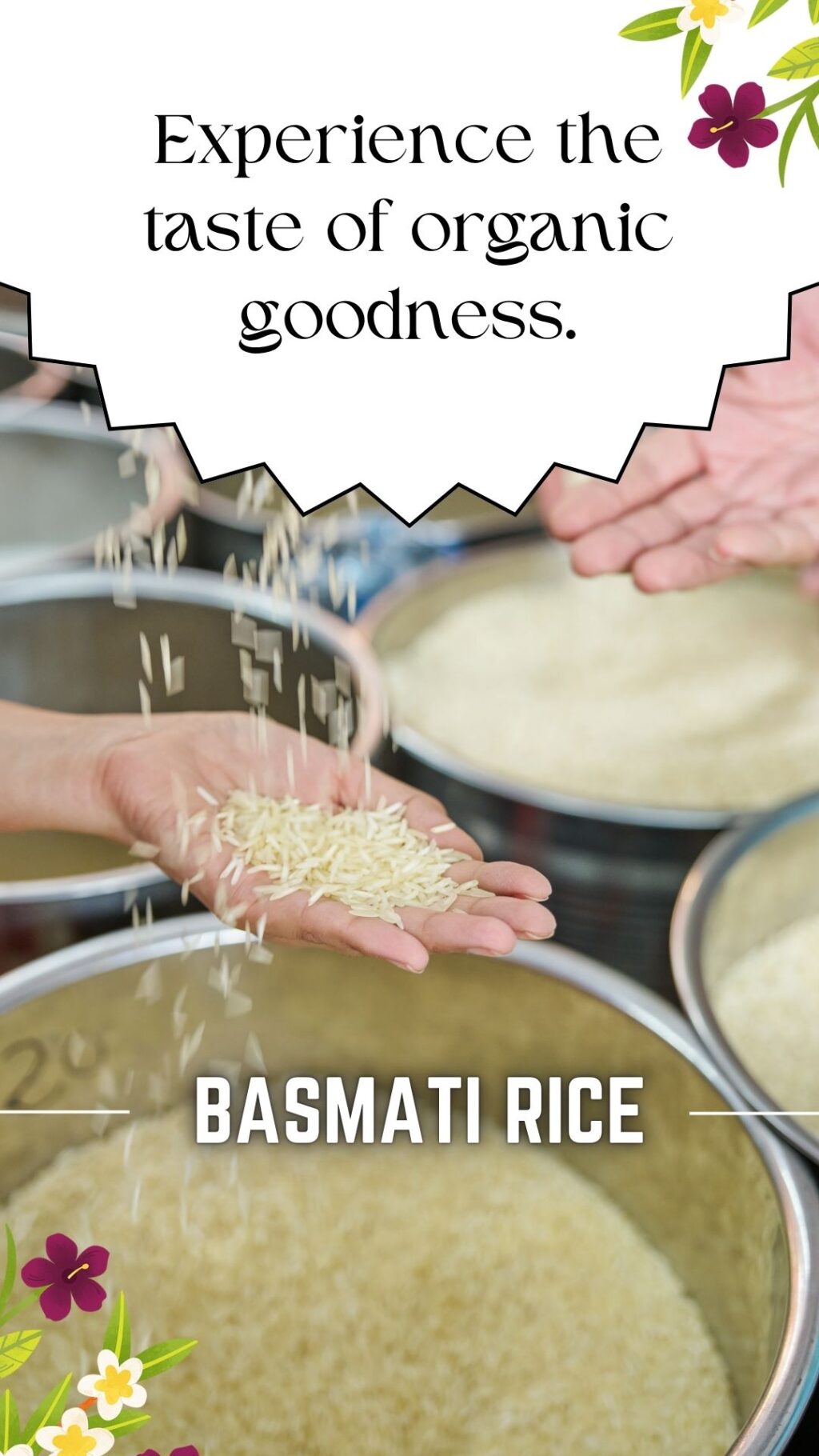
Introduction to Basmati Rice Suppliers
The global demand for Basmati rice has witnessed a steady rise due to its long grains, distinct aroma, and soft texture. At the heart of this trade are Basmati rice suppliers who ensure consistent quality and timely delivery to wholesalers, retailers, and distributors worldwide. These suppliers form the backbone of the Basmati supply chain, managing everything from sourcing and processing to packaging and export compliance.
Whether it’s traditional hand-harvested rice or modern hygienic milling, Basmati rice suppliers contribute significantly to maintaining the heritage and reputation of this cherished grain.
Role of Basmati Rice Suppliers in the Value Chain
Basmati rice doesn’t go from paddy to plate overnight. The transformation involves a series of well-coordinated steps, and Basmati rice suppliers are deeply involved in each phase:
- Procurement: Suppliers source directly from farmers in Basmati-growing regions like Punjab, Haryana, and Uttar Pradesh.
- Processing: This includes dehusking, polishing, grading, and aging, which enhances flavor and texture.
- Packaging: Suppliers ensure moisture-proof, food-grade packaging that preserves aroma and quality.
- Compliance: Export-ready suppliers comply with international food safety regulations and certifications like ISO, HACCP, and BRC.
Without professional suppliers, Basmati rice wouldn’t maintain its global status for quality and consistency.
Key Qualities of Trusted Basmati Rice Suppliers
Not all suppliers are the same. When looking for Basmati rice suppliers, several traits separate the genuine from the average:
- Traceability: Reliable suppliers provide full traceability from farm to port.
- Certifications: ISO, HACCP, FSSAI, USDA Organic, and Halal certifications speak volumes about quality control.
- Consistency: Maintaining uniform grain size, moisture content, and aroma across batches is crucial.
- Customer Support: A responsive team that offers flexible MOQ, documentation, and global logistics.
- Storage & Aging: Proper warehousing for aging enhances rice flavor and elongation during cooking.
A competent supplier maintains a perfect balance between traditional practices and modern food safety standards.
India as the Leading Hub for Basmati Rice Suppliers
India is globally regarded as the largest and most reputed hub for Basmati rice suppliers. The Indo-Gangetic plains are naturally suited for Basmati cultivation, with optimal soil conditions and climate. Indian suppliers cater to large-scale orders for markets across the Middle East, Europe, North America, and Asia.
The country offers:
- Varietal Range: From Traditional Basmati to 1121, Pusa, and Sugandha.
- Competitive Pricing: Due to abundant supply and efficient logistics.
- Modern Infrastructure: Advanced milling plants and testing labs.
- Global Market Experience: Suppliers are well-versed with different market requirements.
Indian Basmati rice suppliers play a crucial role in maintaining the authenticity of this heritage grain globally.
Export Capabilities of Basmati Rice Suppliers
The efficiency of Basmati rice suppliers is often judged by their ability to manage international shipments. Leading suppliers ensure:
- Bulk & Container Load Options: Ability to ship in 20ft or 40ft containers.
- Custom Documentation: Includes Certificate of Origin, Phytosanitary, SGS Inspection, and more.
- Private Label Packaging: Custom branding as per buyer requirements.
- Timely Dispatch: Coordination with sea, rail, and air freight services for delivery assurance.
Top-performing suppliers have in-house logistics teams or global freight partners to ensure timely and damage-free deliveries.
Custom Packaging by Basmati Rice Suppliers
A major service provided by Basmati rice suppliers is custom packaging. This includes:
- Bag Sizes: Ranges from 1kg retail packs to 50kg bulk bags.
- Material Options: Jute, PP, non-woven, vacuum-sealed, and BOPP laminated bags.
- Design & Printing: Suppliers offer OEM packaging with multicolor printing for retail brands.
- Barcode & Labeling: Compliant with local regulations of importing countries.
This added packaging flexibility allows importers and wholesalers to sell under their own brand, making suppliers an integral part of the retail value chain.
Popular Varieties Offered by Basmati Rice Suppliers
Reliable Basmati rice suppliers usually deal in multiple variants to meet the diverse culinary and cultural preferences across countries. Common varieties include:
- Traditional Basmati: Known for its strong aroma and long aging period.
- 1121 Basmati: Extra-long grain, high elongation, and soft texture.
- Pusa Basmati: A hybrid with excellent cooking quality.
- Sugandha: Light aroma, economical, often used in daily meals.
- Steam, Raw, Parboiled, and Sella: Available in multiple processing forms.
By offering a wide product portfolio, suppliers can serve both bulk buyers and niche gourmet markets.
Quality Control Practices by Basmati Rice Suppliers
Quality control is non-negotiable in the Basmati rice business. Leading Basmati rice suppliers implement strict checks at every stage:
- Incoming Raw Material: Moisture, impurity, and broken grain checks.
- Processing Supervision: Machine calibration, grain polish control, and hygiene standards.
- Laboratory Testing: Tests for pesticide residues, heavy metals, and aflatoxins.
- Packaging Line Inspection: Sealing integrity, labeling accuracy, and final weight.
In addition, aging rooms are temperature-controlled and grains are sampled periodically to ensure ideal maturation.
How to Choose the Right Basmati Rice Suppliers
Whether you are a bulk importer or a supermarket chain, selecting the right supplier can determine your long-term success. Here’s what to check:
- Background Check: Years in business, past shipment records, and client reviews.
- Certifications: Look for legal, food safety, and export certifications.
- Product Sampling: Evaluate grain length, aroma, texture, and packaging before finalizing.
- MOQ & Pricing: Transparent rates with realistic minimum order quantities.
- Customer Support: Availability of sales, logistics, and export coordination teams.
Working with the right Basmati rice suppliers ensures consistency, reliability, and customer satisfaction in the long run.
Role of Technology Among Modern Basmati Rice Suppliers
Many modern suppliers are adopting technology for improved supply chain visibility and performance:
- ERP Systems: Manage procurement, inventory, and shipping efficiently.
- Online Portals: Enable buyers to track orders, download documents, and raise support tickets.
- Blockchain Traceability: Some suppliers offer blockchain-based farm-to-fork tracking.
- AI-Driven Quality Check: Machine vision for grain sorting and defect detection.
Such innovations help Basmati rice suppliers offer faster response times, better accuracy, and real-time transparency to global buyers.
Sustainability Practices by Basmati Rice Suppliers
Environmental consciousness is becoming important for global trade. Many Basmati rice suppliers are shifting towards sustainable practices:
- Water-Efficient Farming: Promoting drip irrigation and rainwater harvesting.
- Eco-Friendly Packaging: Using recyclable or biodegradable materials.
- Waste Management: Reusing rice husk for biofuel and packaging.
- Fair Trade: Ensuring fair prices to farmers and ethical labor practices.
Buyers increasingly prefer suppliers who align with sustainability goals, adding long-term value to their brand.
Challenges Faced by Basmati Rice Suppliers
Despite high global demand, suppliers face several challenges:
- Price Volatility: Market price changes due to weather or policy shifts.
- Logistics Delays: Port congestion or container shortages.
- Pesticide Norms: Stricter limits in the EU and US markets.
- Climate Change: Affecting crop yield and harvest quality.
- Certification Compliance: Frequent audits and documentation burdens.
Yet, experienced Basmati rice suppliers develop systems and backups to tackle these challenges efficiently and consistently.
Final Thoughts on Basmati Rice Suppliers
The strength of the global Basmati market lies in its supply chain. And at the core of this chain are efficient, ethical, and expert Basmati rice suppliers who ensure the world receives consistent quality rice that retains its aroma, taste, and texture.
From sourcing and milling to packaging and shipping, they ensure that every grain reflects the legacy of the regions it came from. Whether you’re a startup food brand or a multinational buyer, aligning with the right supplier is key to delivering unmatched quality to your customers.
In conclusion, Basmati rice suppliers are not just vendors—they are custodians of heritage, culture, and trust in every grain they deliver.





